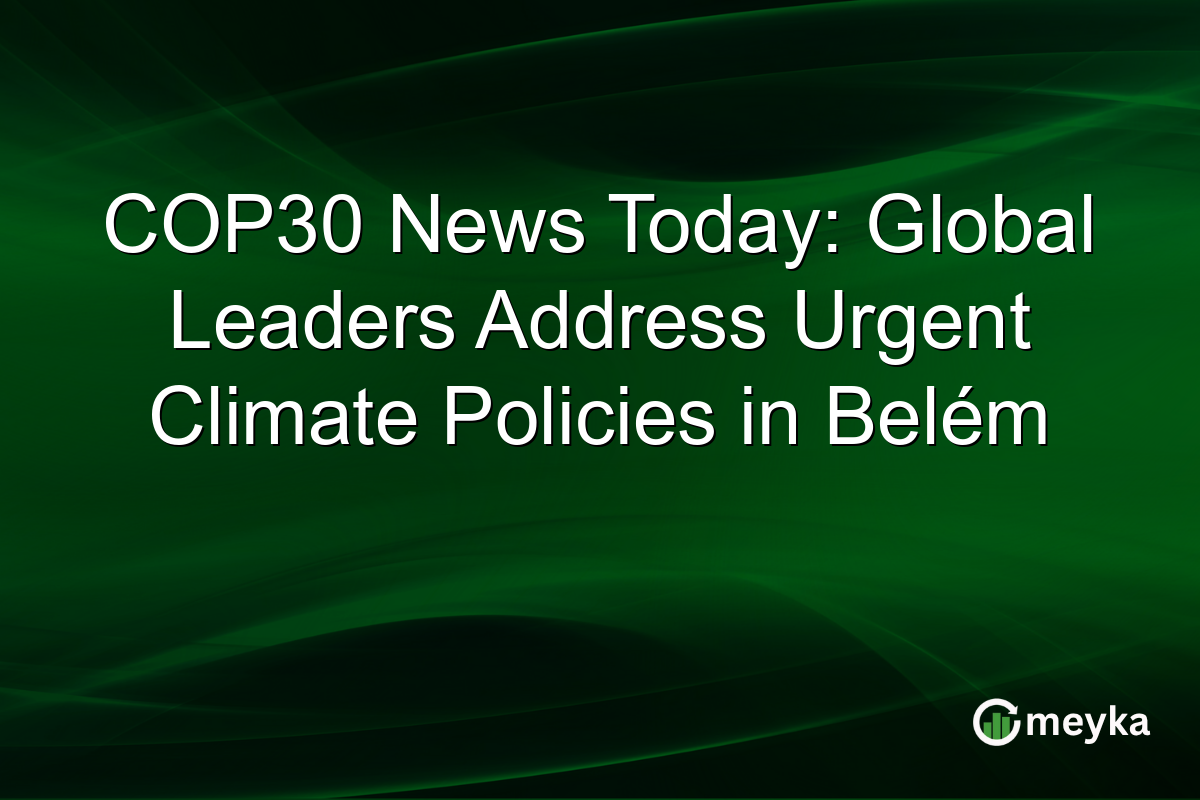COP30 News Today: Global Leaders Address Urgent Climate Policies in Belém
Amid increasing environmental challenges, the COP30 climate policies discussions are happening in Belém, where global leaders are gathering to address critical strategies for tackling climate change. This annual event emphasizes meaningful international cooperation to mitigate both immediate and long-term environmental impacts. Given Germany’s commitment to sustainable practices, the discussions in Belém are particularly significant for advancing global policy frameworks.
Continue Reading on Meyka
This article is available in full on our main platform. Get access to complete analysis, stock insights, and more.
Read Full Article →





